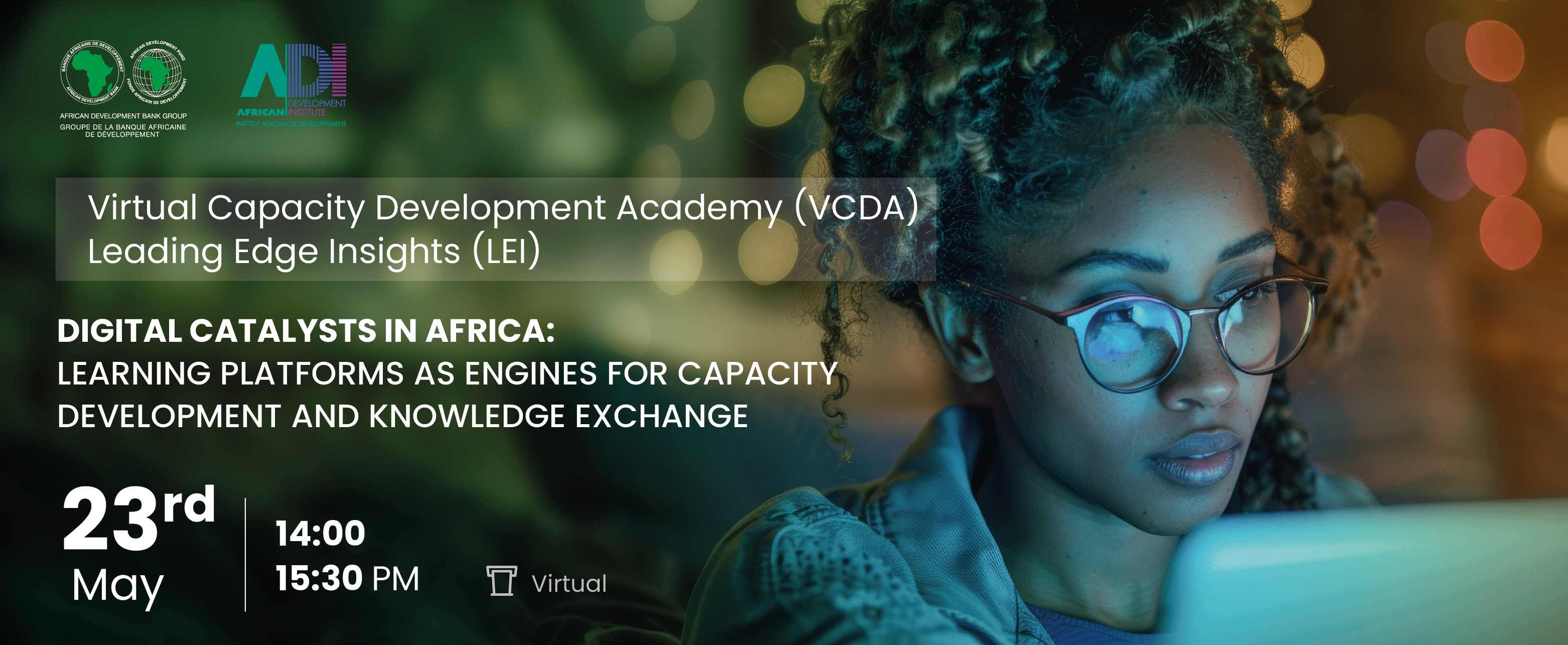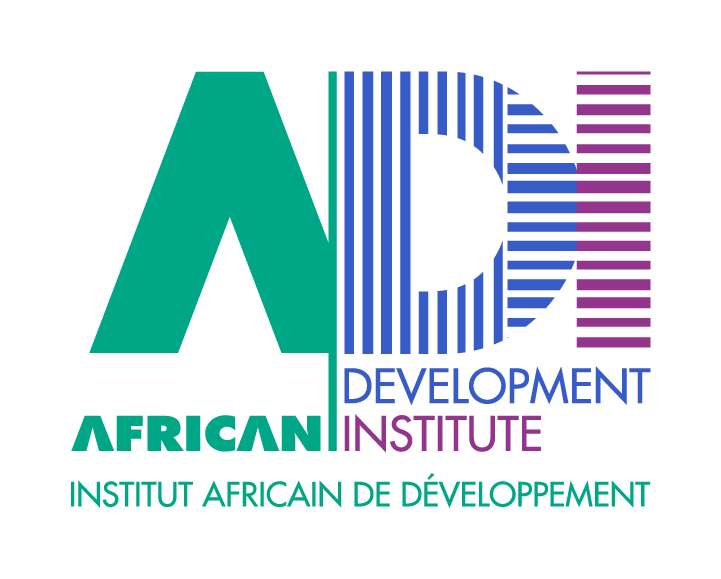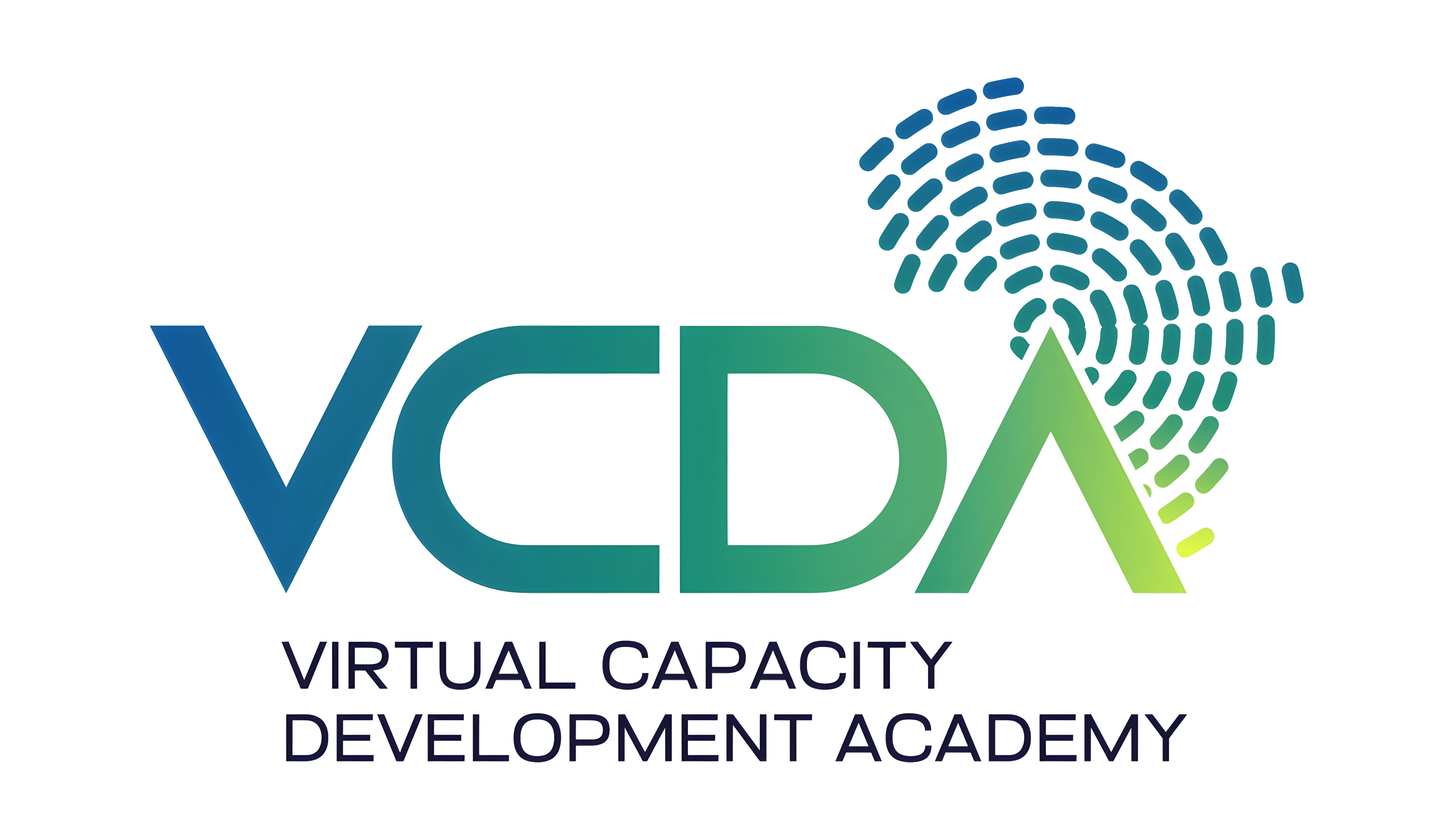
Introduction
The webinar titled " Digital Catalysts in Africa - Learning Platforms as Engines for Capacity Building", hosted by the African Development Bank Group, explored transformative learning technologies and their pivotal role in reshaping education and professional development in the digital era. The event was opened by the Vice President, who emphasized the critical role of innovative learning solutions in addressing current educational challenges across Africa.
Presentation Summaries
Sheila Jagannathan: Learning Platforms as Engines for Capacity Building Sheila discussed the critical role of digital learning platforms in driving educational accessibility and enhancing capacity development across Africa. Her presentation highlighted how these platforms overcome geographical barriers, fostering skill development and knowledge sharing, particularly in the African Development Bank’s High-Five priority areas. Emphasizing the shift towards a digital learning environment catalyzed by the pandemic, Sheila illustrated how virtual platforms are not only broadening educational opportunities but also promoting sustainable development and green innovation. Key examples of successful platform implementations were shared, alongside the challenges and technological advancements, such as AI and VR, that are revolutionizing learning landscapes.
Chris Dede: Adult Upskilling and Reskilling in the Age of Hybrid Work
Chris’s presentation delved into the innovative approaches to digital education that have emerged post-pandemic, enhancing adult learning through online and hybrid models. He discussed the strengths of these models, which include bridging physical distances, personalizing learning via data streams, and employing AI-based instructional assistants for ethical use. Chris highlighted the importance of these technologies in providing detailed feedback and sustaining digital communities of practice, which are crucial for lifelong learning and professional development.
Key Takeaways
· Blended Learning Approaches: The future of learning encapsulates a blend of face-to-face and digital experiences, accommodating different learning styles and needs.
· Emerging Technologies: Advanced technologies like AI and VR are crucial in crafting personalized, engaging, and effective educational experiences.
· Enhanced Accessibility and Flexibility: Digital platforms enable learning beyond geographical and temporal boundaries, making education more inclusive and adaptable to individual schedules.
· Focus on Practical Skills: Both presentations underscored the importance of equipping learners with practical skills and knowledge that directly translate to improved job performance and career advancement.
Conclusion
The Vice President concluded the webinar with remarks that reinforced the importance of embracing digital education technologies to foster a more inclusive and effective learning environment across the continent. He commended the insights provided by the speakers and encouraged participants to leverage these strategies in their respective fields and communities.
This summary captures the vital discussions and insights shared during the webinar, emphasizing the transformative impact of digital education on capacity building and professional development for AfDB and in Africa.


